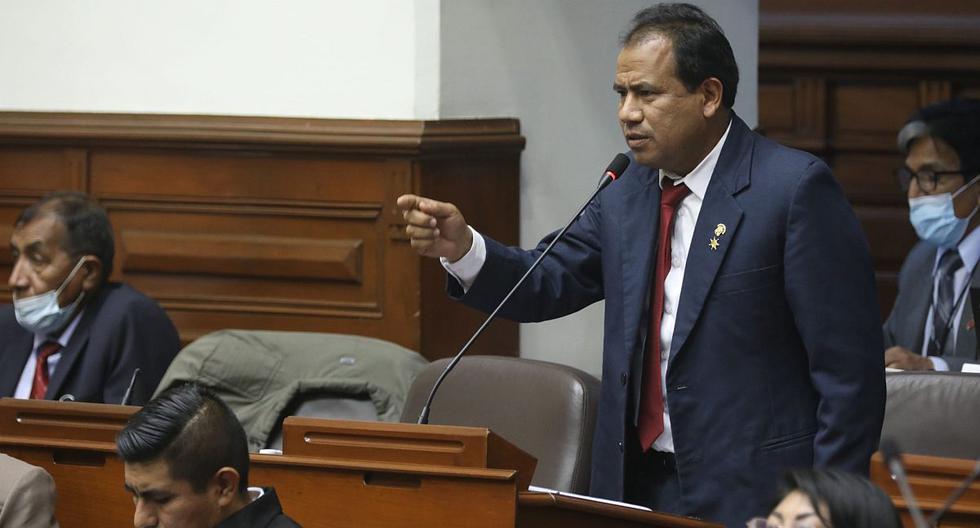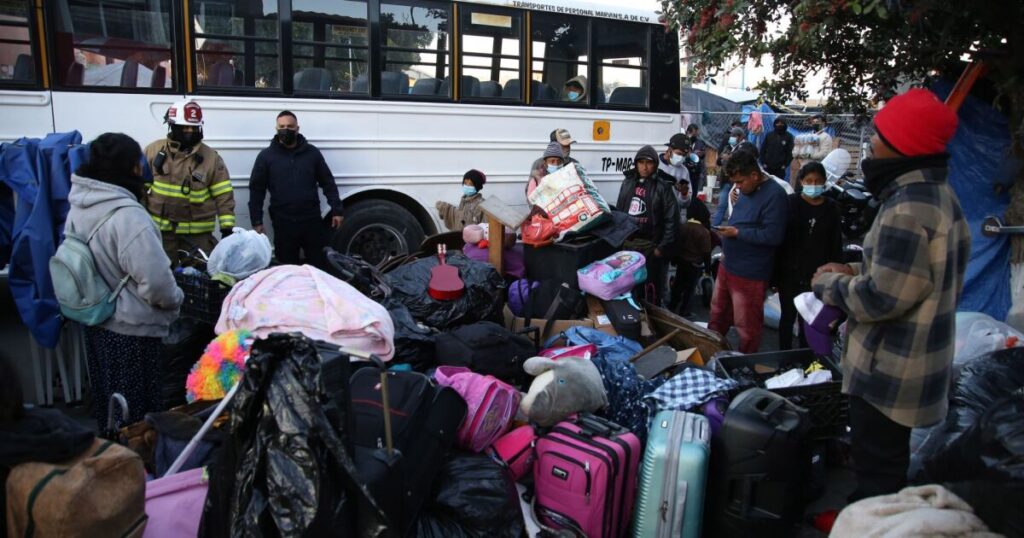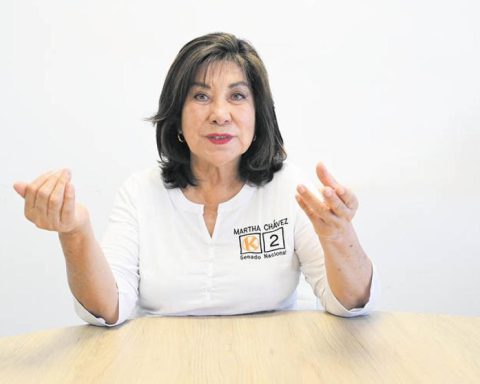This year marks 6 decades since the United States imposed a trade embargo on Fidel Castro’s regime and it remains in place today.
On the occasion of this symbolic date, former Cuban political prisoner and diplomat Luis Zúñiga recently published a report in which he evaluates, in his own words, the convenient use by the communist regime of the term ‘blockade’.
Zúñiga assures that its use by the Cuban government has the evident purpose of magnifying its impact and presenting itself as “a victim” that arouses sympathy or pity from the rest of the nations (because Cuba is a small country and the United States is a large and powerful one). ).
In his brief, he points out that the Cuban Ministry of Foreign Affairs has been voting at the UN for years on the resolution on the “need to end the blockade”… and reciting the losses that Cuba has suffered during the 60-year embargo. had: “More than 930 billion US dollars”. Even in 2021, a documentary aimed primarily at the American public was presented: “The War Against Cuba”, as part of a propaganda manipulation machine that has been used with remarkable efficiency and replicated by all the leftist governments of the world, particularly since the collapse of the socialist camp in Eastern Europe and the crisis that this produced in Cuba.
However, Zúñiga indicates that what the documentary produced by Danny Glover and Oliver Stone and the Minrex do not say is that the root of the embargo was the aggression of the Castro regime, through its confiscatory action (without compensation) against US companies such as “Texaco ”, “Shell” and “Esso” in 1960, shortly after the triumph of the ‘Cuban revolution’ and in a context of the Cold War.
More confiscations
According to Zúñiga, the aforementioned oil companies were joined by another 38 North American companies, including the 36 sugar mills they owned, as well as the telephone and electricity companies. Although nationalizations around the world require governments to adequately compensate foreign owners, all of these companies were nationalized without compensation by order of Fidel Castro.
The first response of the president of the United States was to cancel the sugar quota of 3 million tons that he bought annually from Cuba. Then, before raising tariffs on imports of US products, the government of that country decided to suspend the export of goods to Cuba, except for medicines and food.
Finally, Fidel Castro ordered “the nationalization of all foreign banks”, and on October 24 “ordered the confiscation of all North American companies that remained in Cuba. Confiscations from Americans were valued at that time at just over $1,000 million dollars”, explains Zúñiga.
The situation escalated until on January 3, 1961, diplomatic relations were severed.
Kennedy’s next step was to order the Trade Embargo on Cuba, based on the “Foreign Assistance Act” approved by the United States Congress.
To impose the embargo, the explanation given by President Kennedy to Congress was to defend the interests of US citizens arbitrarily dispossessed of their legally established companies in Cuba. He tells then, as a curious fact, that only the United States was excluded from payment for nationalized properties and businesses, in contrast to the payment guarantees it gave to the rest of the affected countries, something that was a demonstration that its action was selective. and had as a background a cultivated “hatred” of the neighboring country, Zúñiga reviews.
Embargo or Block?
For Elías Amor, an expert from the Cuba Study Group, those who affirm that the embargo against Cuba is immoral and illegal have no basis whatsoever. “What they show is a great ignorance of history. The origin of the embargo occurred when Fidel Castro’s regime, unilaterally and without any justification, proceeded, beginning in 1959, to confiscate and expropriate, without paying compensation, the business and productive capital of the United States in Cuba. Decisions of this caliber led the United States government to demand payment (the bonds issued by the regime were not accepted, because they lacked financial backing as they were conditioned to the sugar quota that Cuba maintained in the United States and which was also questioned)” .
It specifies that the United States, to defend the economic interests of its nationals expropriated by the revolutionary regime, decreed the embargo in the Eisenhower administration. “Later, in 1962, Kennedy expanded the embargo regulation by extending the restrictions on Cuban imports with reference to the Foreign Assistance Act., approved by Congress in 1961 and which authorized the president to impose these measures until the Cuban government advanced in the compensation of US citizens for naturalizations”.
no lock
Experts declare that blocking a country economically implies measures that have not been used in the case of Cuba: surrounding the country with warships, blocking the airspace to prevent the arrival of goods and supplies.
In addition, a blockade prevents trade and banking and financial transactions with other countries. Instead, Cuba trades with a large number of countries and conducts normal transactions with them.
Only direct transactions with the United States —or those subject to restrictions due to suspicions of having links with terrorist groups, money launderers or their figureheads— are limited or controlled; just as it is prohibited to give Cuba access to credits in the United States.
Even so, the United States is Cuba’s 5th largest trading partner in terms of trade volume and, according to the US Department of Agriculture, supplies about 96% of the rice and 70% of the poultry products consumed. in Cuba. This is due in part to the fact that throughout these years, presidents of the United States modified the restrictions imposed by the embargo, seeking improvements in the human rights situation on the island.
“There has never been a blockade, except for a few days during the missile crisis in October 1962. But it has been very good for the Cuban communist regime to maintain that image of harassment, which is false, because in reality Cuba can trade freely with all countries of the world and receive investments, credits and loans, tourists and remittances equally without any restriction from the countries that so wish. There is even a trade in food, medicine, etc. with the United States that has reached important figures in 2021, and that the only exception is that it is appraised with the embargo regulations (for example, you have to pay in cash, there is no credit)”, explains Amor.
Justification and sanctions
However, the propaganda about the ‘blockade’ is constant and the regime uses it to justify the country’s problems, from the lack of food and medicine to the precariousness of hospital facilities, Zúñiga points out.
Particularly during the last year of Donald Trump’s government, the propaganda focused on his sanctions, including the cancellation of cruise trips to Cuba, application of the Helms-Burton Act, return of Cuba to the list of countries that they do not collaborate in the fight against terrorism and selective sanctions to various senior Castro officials and soldiers linked to the repression against citizens who express some form of dissent with the regime.
Amor considers that the main substance of the embargo has been maintained because the Cuban communist regime “has not given a single sign of recognizing the payment of compensation.” The subsequent developments based on the Torricelli Law or the Helms Burton Law —they indicate—, although they pay attention to the issue of democracy, human rights and freedoms, continue with “the logical claims” of money that Cuba “has neither paid nor plan to pay.” “The foundation of the embargo is that, and it is fully justified,” he says.
However, the analyst highlights as points in favor of the Cuban regime in this conflict the scope of its propaganda and, in contrast, that “the United States has never adequately explained its position.” “It is not true that the embargo causes any damage to the people or the economy. The reality is that what makes the Cuban economy not work is the communist regime imposed on the population by force, and the economic and social model that does not exist in any country in the world, except North Korea. This is the authentic immoral embargo that the regime practices on all Cubans, those inside and those outside, ”he values.
He explains that the embargo is maintained by the will of the Cuban regime as a political survival strategy: “It has gone very well with it. If the dispute is to be resolved, the only thing the regime has to do is negotiate and pay. But they will never do that and they prefer that the impasse be maintained for 60 years”.
On the other hand, the expert assures that the US position is correct, both from the perspective of protecting its vulnerable nationals without compensation and for the future of Cubans: “Thinking in counterfactual terms, possibly, if the embargo had not been applied , the Cuban communist regime would have acted against the economic interests of other countries, feeling free to do so. Thanks to the embargo, this expropriatory and confiscatory greed has been curbed.”











